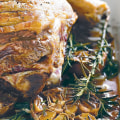Australian Health Guide · About the Australian diet. The Australian Dietary Guidelines recommend enjoying a wide variety of nutritious foods. The Guidelines provide evidence-based recommendations on the types and quantities of food that Australians must eat to meet nutritional requirements. The Guidelines are based on the best available scientific evidence on food and nutrition.
They apply to all healthy Australians, as well as those with common health problems, such as being overweight. They don't apply to people who need special dietary advice for a medical condition, or to frail elderly people. The Australian Dietary Guidelines (ADG) are a framework for healthy eating among the general population. They provide population-level guidance on a healthy diet.
The Australian Dietary Guidelines also provide advice on the number of servings from each food group that Australians should eat each day. Different amounts are recommended for people of different ages, gender, life stages, height, and physical activity level. This page presents the latest nationally available data to inform the extent to which Australians comply with recommended guidelines. Most Australians get enough protein, but there are some groups of people who may need to control the amount of protein they eat.
Children raised in families that enjoy a variety of foods from the five food groups are more likely to make their own healthy choices when they are older. Enjoy a wide variety of nutritious foods from all five food groups every day to provide your little one with a greater variety of vitamins, minerals and many other nutrients. To achieve and maintain a healthy weight, be physically active and choose amounts of nutritious foods and beverages to meet your energy needs. The Guidelines are for use by health professionals, policy makers, educators, food manufacturers, food retailers, and researchers.
The following foods are not essential to a child's diet and should be avoided by parents with young children. Some children's portion sizes are smaller than the serving size; they'll need to eat smaller amounts from food groups more often. Alcohol and highly processed foods (high in sugar, fat and sodium) should be consumed only occasionally and in small amounts. More detailed information on how the Australian Dietary Guidelines provide dietary advice for health and well-being.







